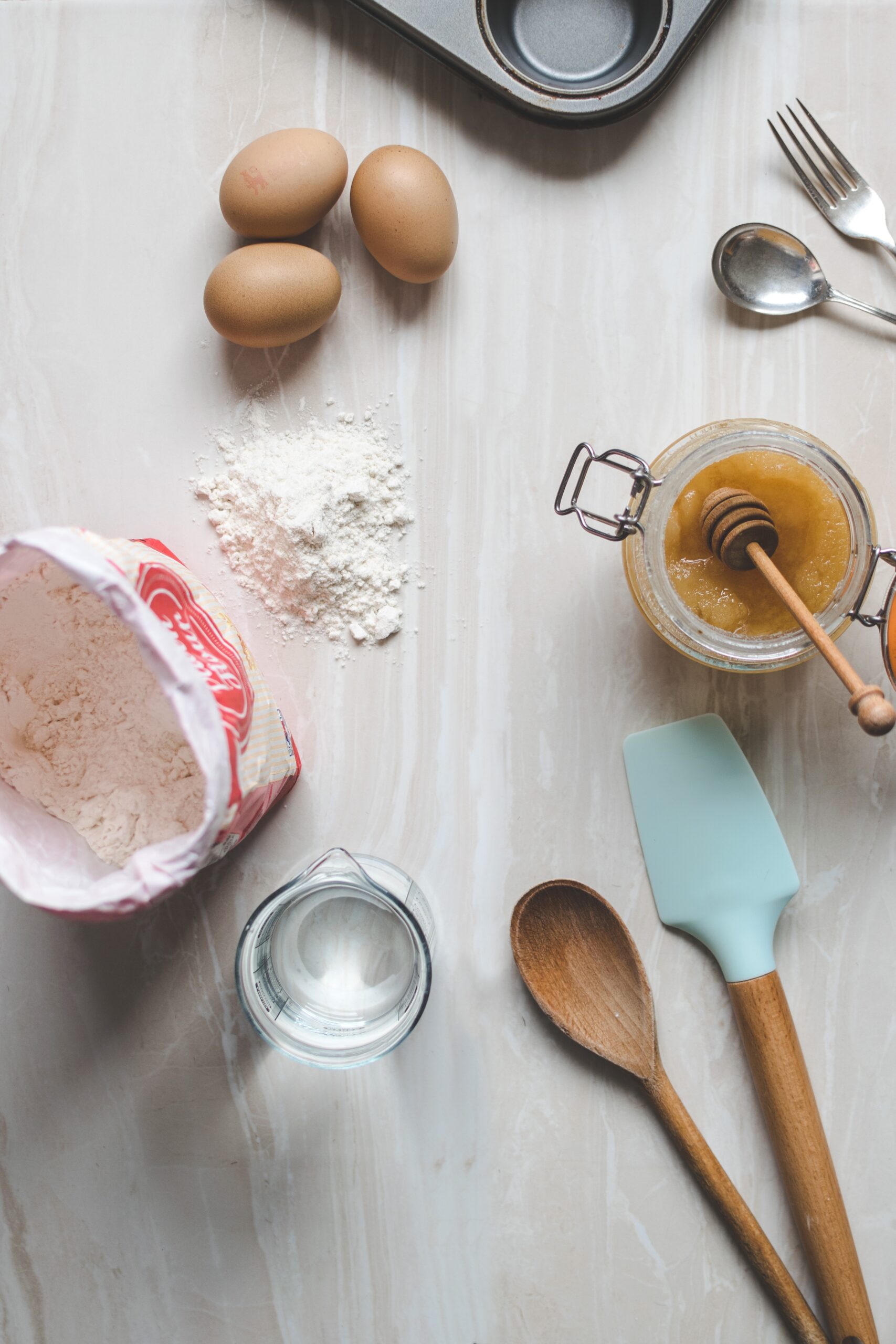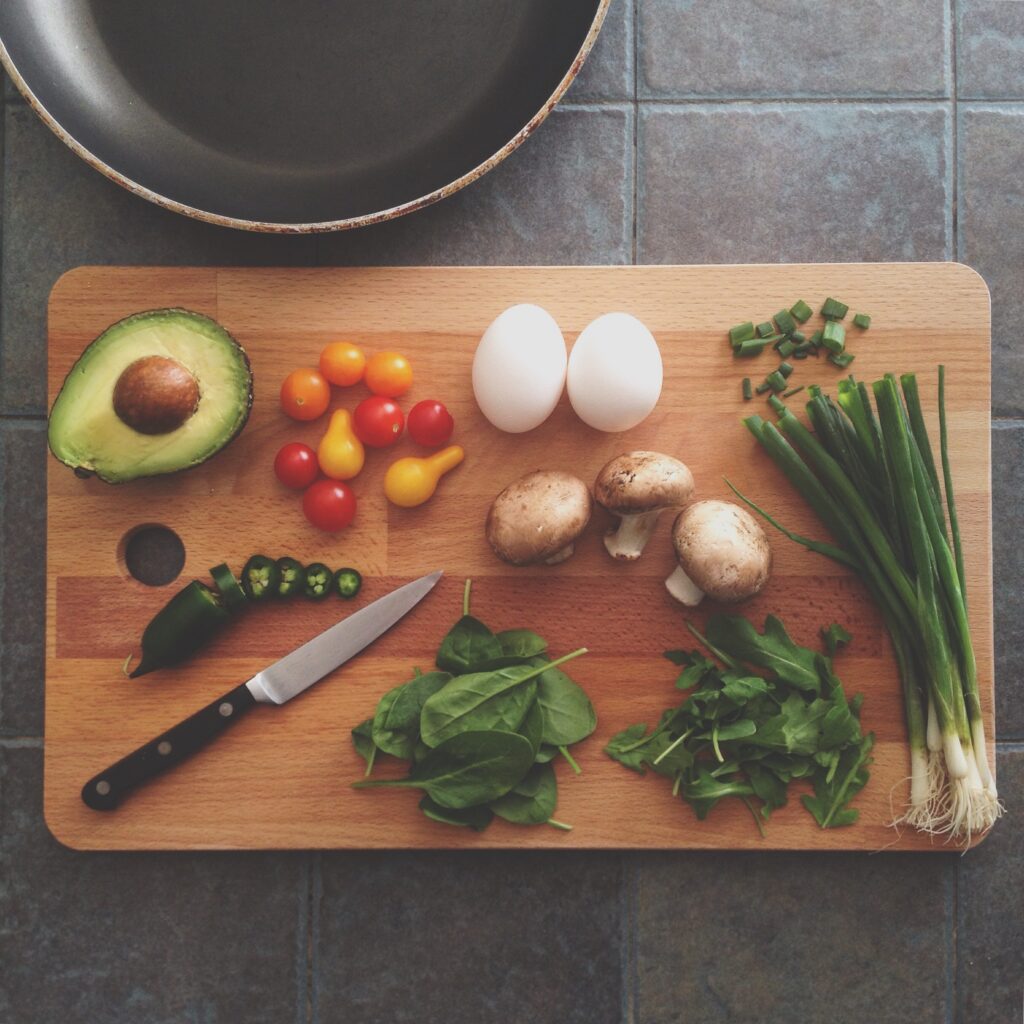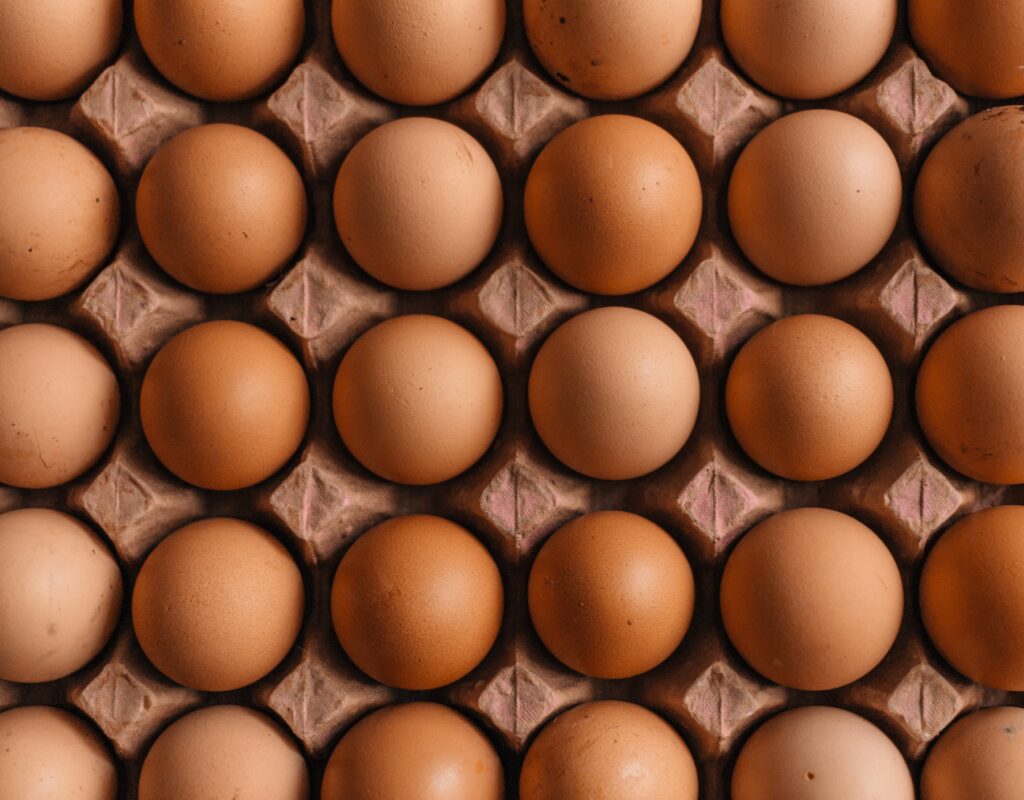
Imagine sitting down at a table with a plate in front of you, and on that plate sits a delicious dinner with eggs. It’s a simple meal, but one that brings a smile to your face. The aroma of the eggs fills the air, making your stomach rumble in anticipation. You pick up your fork and take your first bite, savoring the creamy yolk and the perfectly cooked whites. The eggs are the star of the show, providing a burst of flavor and texture to every mouthful. As you enjoy your dinner with eggs, you can’t help but feel grateful for the simple pleasures in life that bring so much joy.
Choosing the eggs
Types of eggs
When it comes to choosing eggs for your dinner, you have a variety of options available. The most common types of eggs you’ll find in the supermarket are chicken eggs. These eggs come in different sizes, such as small, medium, large, and extra-large, so you can choose the size that suits your needs. Additionally, you might come across specialty eggs, such as organic or free-range eggs. Organic eggs are produced by hens that are fed with organic feed and are not treated with antibiotics or hormones. Free-range eggs come from hens that have access to outdoor areas, allowing them to engage in natural behaviors like pecking and scratching.
Egg quality
To ensure that you are getting the best quality eggs for your dinner, there are a few things to keep in mind. First, always check the expiration date on the carton to ensure that the eggs are still fresh. You can also perform the “float test” by placing an egg in a glass of water – if it sinks to the bottom and lays flat, it is fresh. If it stands upright or floats, it is past its prime and should not be consumed. Additionally, look for eggs with clean and uncracked shells. Avoid any eggs with visible cracks, as they may be more susceptible to bacterial contamination.
Sustainable egg options
If you are conscious about sustainability and the welfare of hens, there are sustainable egg options available. Look for eggs with labels such as “Certified Humane” or “Animal Welfare Approved.” These labels indicate that the hens were raised in a humane environment and had access to pasture. Another sustainable option is to consider backyard eggs from local farmers or even raise your own chickens if you have the space and resources. By choosing sustainable egg options, you can support ethical practices and reduce your environmental impact.
Egg-based dinner ideas
Classic omelette
One of the most versatile and delicious dinner options with eggs is a classic omelette. You can customize it to suit your taste by adding various fillings such as cheese, vegetables, or cooked meats. To make a classic omelette, start by whisking together eggs, salt, and pepper. Heat a non-stick skillet over medium heat and add a small amount of butter or oil. Pour the egg mixture into the skillet and let it cook undisturbed until the edges start to set. Then, use a spatula to gently lift and fold the omelette in half. Cook for a few more minutes until the inside is set but still slightly runny. Serve your omelette with a side of salad or toast for a satisfying and nutritious dinner.
Deviled eggs
Deviled eggs are a crowd-pleasing appetizer that can also be enjoyed as part of a dinner spread. To make deviled eggs, start by hard-boiling the eggs. Once they are cooked and cooled, carefully peel them and slice them in half lengthwise. Remove the yolks and place them in a bowl. Mash the yolks with mayonnaise, mustard, salt, and pepper until you have a creamy filling. Spoon or pipe the filling back into the egg white halves and garnish with paprika, fresh herbs, or bacon crumbles. Deviled eggs are not only delicious but also a great way to use up leftover hard-boiled eggs.
Scrambled eggs with toppings
Scrambled eggs are a quick and easy dinner option that can be elevated with the addition of various toppings. Start by whisking together eggs, salt, and pepper in a bowl. Heat a non-stick skillet over medium-low heat and add a little butter or oil. Pour the egg mixture into the skillet and let it cook without stirring for a minute or two until the edges start to set. Then, gently stir the eggs every few seconds, pushing them from the edges towards the center. Once the eggs are mostly cooked but still slightly runny, remove them from the heat. Add your favorite toppings, such as cooked vegetables, cheese, herbs, or even leftover roasted meats. Stir everything together and let the residual heat from the eggs melt the cheese and warm up the toppings. Serve the scrambled eggs with toast or a side of roasted potatoes for a hearty dinner option.

Creative egg dishes
Egg fried rice
Egg fried rice is a flavorful and satisfying dish that can be enjoyed as a main course or a side dish. To make egg fried rice, start by cooking rice according to package instructions and set it aside. In a separate pan or wok, heat some oil over medium-high heat. Add diced vegetables, such as onions, carrots, and peas, and stir-fry for a few minutes until they are tender-crisp. Push the vegetables to the side of the pan and pour beaten eggs into the empty space. Let the eggs cook for a minute or two without stirring, then scramble them with a spatula and mix them with the vegetables. Add the cooked rice to the pan and season with soy sauce, garlic, and any other desired seasonings. Stir everything together until it is well combined and heated through. Egg fried rice is not only delicious but also a great way to use up leftover rice and vegetables.
Egg curry
Egg curry is a flavorful and protein-rich dish that can be enjoyed with rice or bread. To make egg curry, start by hard-boiling the eggs and setting them aside. In a separate pan, heat some oil and sauté onions, garlic, and ginger until they are soft and fragrant. Add spices like turmeric, cumin, coriander, and red chili powder, and cook for a minute to release their flavors. Pour in diced tomatoes and cook until they break down and form a thick sauce. Add coconut milk or broth to the pan and bring the mixture to a simmer. Gently peel the hard-boiled eggs and add them to the curry sauce. Allow the eggs to simmer in the sauce for a few minutes to absorb the flavors. Serve the egg curry with rice or bread for a delicious and satisfying dinner.
Egg soufflé
Egg soufflé is a light and fluffy dish that makes for an impressive dinner option. To make an egg soufflé, start by separating the egg yolks and whites into separate bowls. Whisk the egg yolks with salt, pepper, and any desired seasonings. In a separate bowl, beat the egg whites until stiff peaks form. Gently fold the beaten egg whites into the yolk mixture without deflating them. Pour the mixture into a greased baking dish or individual ramekins and bake in a preheated oven until the soufflé has risen and is lightly golden on top. Serve the egg soufflé immediately while it is still puffed up and enjoy the airy, delicate texture.
Eggs as a protein source
Nutritional value of eggs
Eggs are not only delicious but also a highly nutritious source of protein. They are packed with essential amino acids, vitamins, and minerals. Eggs contain high-quality proteins that provide all the necessary amino acids needed for growth, repair, and maintenance of body tissues. They are also a rich source of vitamins such as vitamin A, vitamin D, and vitamin B12. Additionally, eggs contain minerals like iron, zinc, and selenium, which contribute to overall health and well-being. Incorporating eggs into your dinner can ensure that you are getting a complete and balanced protein source.
Incorporating eggs into a balanced meal
To make the most of the nutritional benefits of eggs, it is important to incorporate them into a balanced meal. Pairing eggs with vegetables, whole grains, and healthy fats can create a well-rounded dinner. For example, you can serve a vegetable omelette with a side salad and whole grain toast. Alternatively, you can enjoy scrambled eggs with roasted sweet potatoes and avocado. By combining eggs with a variety of nutrient-dense foods, you can create a dinner that not only tastes great but also provides the necessary nutrients to support your overall health.
Eggs for vegetarian and vegan diets
While eggs are not suitable for a vegan diet, they can be a valuable source of protein for vegetarians. Many vegetarians choose to include eggs in their diet to meet their protein needs. However, it is essential to consider the sourcing and production of eggs for ethical reasons. Choosing eggs from free-range or organic sources can ensure that the hens were raised in a humane environment. For those following a vegan diet, there are several plant-based alternatives to eggs, such as tofu, chickpea flour, and flaxseed meal, that can be used as substitutes in various recipes. These alternatives can provide similar texture and binding properties to eggs, making them suitable for vegan baking and cooking.

Egg cooking techniques
Boiled eggs
Boiled eggs are a simple and versatile cooking technique that can be used in various recipes or enjoyed on their own. To boil eggs, start by placing them in a saucepan and covering them with cold water. Bring the water to a boil over high heat, then reduce the heat to low and let the eggs simmer for the desired amount of time. For soft-boiled eggs, cook them for about 4-6 minutes, while hard-boiled eggs require around 9-12 minutes. Once the eggs are cooked, immediately transfer them to an ice bath to stop the cooking process and make them easier to peel. Boiled eggs can be enjoyed as a snack, added to salads, or used as a topping for various dishes.
Poached eggs
Poached eggs are a popular cooking technique that creates a beautifully cooked egg with a runny yolk. To poach an egg, bring a pot of water to a gentle simmer, and add a splash of vinegar to help the eggs hold their shape. Crack an egg into a small bowl, then use a spoon to create a gentle whirlpool in the simmering water. Slowly pour the egg into the center of the whirlpool, allowing the water to swirl around the egg and hold it together. Let the egg cook for about 3-4 minutes until the whites are set but the yolk is still runny. Use a slotted spoon to carefully lift the poached egg out of the water and drain any excess water. Poached eggs are delicious when served on toast, salads, or as a topping for savory dishes.
Fried eggs
Fried eggs are a classic and simple way to enjoy eggs for dinner. To fry an egg, heat a non-stick skillet over medium heat and add a small amount of butter or oil. Crack an egg into a bowl and gently slide it into the skillet. Cook the egg for a few minutes until the whites are set but the yolk is still runny. If you prefer a cooked yolk, you can gently flip the egg and cook it for an additional minute on the other side. Fried eggs can be enjoyed on their own, served with toast, or used as a topping for burgers and sandwiches.
Baked eggs
Baked eggs are a delicious and effortless way to prepare eggs for dinner. To bake eggs, preheat the oven to a moderate temperature and lightly grease individual ramekins or a baking dish. Crack an egg into each ramekin, season with salt, pepper, and any desired herbs or spices. Bake the eggs in the preheated oven for about 10-15 minutes until the whites are set and the yolks are cooked to your preference. Baked eggs can be served with crusty bread, vegetables, or even on top of pasta for a comforting and flavorful dinner.
Egg preparation methods
Egg washing and storage
Before using eggs in your dinner, it is important to wash them properly and store them correctly to ensure their safety and longevity. Contrary to popular belief, it is not recommended to wash eggs before storing them, as this can remove the protective natural coating on the shell and make them more susceptible to bacterial contamination. If your eggs are dirty, simply wipe them clean with a dry or slightly damp cloth. To store eggs, keep them in their original carton in the refrigerator. The carton helps to protect the eggs from absorbing odors and also provides stability, preventing them from rolling around and potentially cracking.
Cracking eggs
Cracking eggs properly is essential to avoid shell fragments falling into your dish and to ensure a tidy preparation process. To crack an egg, tap it gently on a flat surface, such as the countertop or the side of a bowl. Avoid using too much force, as this can cause the shell to shatter and make it harder to control the cracking process. Once the egg is cracked, carefully open it with your thumbs, allowing the egg to fall into a separate bowl or directly into the pan. If you accidentally get shell fragments in the egg, use a larger piece of shell to scoop them out, as the sharp edge can attract the smaller pieces more effectively than other utensils.
Separating egg yolks and whites
In certain recipes, you may need to separate the egg yolks from the whites. To separate eggs, start by cracking the egg gently on a flat surface, as mentioned before. Then, using your thumbs, carefully open the egg into halves, allowing the yolk to remain in one half while the whites slide into a separate container. Let the whites drip through your fingers, gently holding onto the yolk until all the whites have been separated. Transfer the yolks into another bowl or dish, making sure to avoid any contact with the whites. Separating eggs is easier when they are cold, as the yolks are firmer and less likely to break in the process.

Egg safety and freshness
How to check egg freshness
Ensuring that your eggs are fresh is important for both taste and safety reasons. There are a few simple ways to check the freshness of an egg. One method is the float test, where you place an egg in a glass of water. If the egg sinks to the bottom and lies flat, it is fresh. A slightly older egg will stand upright, while an egg that floats is likely past its prime and should not be consumed. Additionally, you can check the smell of the egg. Fresh eggs have a neutral odor, whereas spoiled eggs may have a sulfurous or rotten smell. Finally, check the appearance of the egg. Fresh eggs have clear and firm whites, while older eggs might have watery whites or an off-color appearance.
Storing leftover eggs
If you have leftover cooked eggs from your dinner, it is essential to store them properly to maintain their freshness and prevent bacterial growth. Place the eggs in an airtight container or cover them tightly with plastic wrap before placing them in the refrigerator. It is recommended to consume leftover cooked eggs within 2-3 days to ensure their quality. If you are unsure whether the eggs are still good to eat, use your senses to assess their freshness. If they have an off smell or appearance, it is best to discard them to avoid any potential foodborne illnesses.
Avoiding salmonella contamination
Salmonella is a common bacterial infection associated with eggs. To reduce the risk of salmonella contamination, follow some simple precautions. Firstly, always wash your hands thoroughly before and after handling eggs. This reduces the risk of transferring any bacteria from the shells to other surfaces or foods. Secondly, avoid consuming raw or undercooked eggs, as they may contain harmful bacteria. Ensure that eggs are cooked until both the whites and yolks are firm. If you are preparing recipes that call for raw or lightly cooked eggs, such as homemade mayonnaise or Caesar salad dressing, consider using pasteurized eggs to minimize the risk of salmonella.
Egg accompaniments
Toast and eggs
A classic and simple accompaniment to eggs is toast. Whether it’s a slice of crusty artisan bread, a bagel, or a piece of whole grain toast, the combination of eggs and toast is a satisfying and delicious choice for dinner. Toast provides a wonderful texture contrast to the creamy eggs and can be enjoyed plain or with a spread of butter, avocado, or your favorite jam.
Potatoes and eggs
Potatoes and eggs form a winning combination that can be enjoyed in various dishes. From crispy hash browns to comforting potato and egg scrambles, the duo provides a hearty and filling option for dinner. You can prepare roasted potatoes, seasoned with herbs and spices, to serve alongside eggs, or opt for a potato and egg skillet dish, where the potatoes are cooked together with the eggs, creating a flavorful and satisfying one-pan meal.
Sausages and eggs
For those craving a protein-packed dinner, sausages and eggs make an excellent pairing. Whether it’s a classic breakfast sausage, a spicy chorizo, or a vegetarian alternative, sausages add a savory and flavorful element to eggs. You can serve sausages alongside scrambled eggs, omelettes, or even incorporate them into a breakfast casserole. The combination of sausages and eggs creates a satisfying and complete meal that is sure to please your taste buds.
Desserts with eggs
Classic custard
Eggs are not only versatile for savory dishes but can also be used to create delectable desserts, such as classic custard. Custard is a velvety smooth dessert made by combining eggs, milk, sugar, and vanilla. The mixture is then gently cooked until it thickens and coats the back of a spoon. Custard can be enjoyed on its own or used as a base for other desserts, such as fruit tarts or trifles. Its creamy texture and rich flavor make it a perfect ending to a dinner with eggs.
Meringue
Meringue is a delightful dessert made primarily from egg whites and sugar. It is a light and airy confection that can be used to top pies, create pavlova, or make crispy cookies. To make meringue, beat egg whites until they form stiff peaks, then gradually add sugar while continuing to beat until the mixture is glossy and holds its shape. The meringue can then be shaped and baked until it is crisp on the outside and marshmallow-like on the inside. Meringue adds a touch of elegance to any dessert and is a delicious way to use up leftover egg whites.
Sponge cake
Sponge cake is a classic and versatile dessert that relies heavily on eggs for its light and fluffy texture. To make a sponge cake, eggs are beaten together with sugar until light and fluffy, then combined with flour, baking powder, and flavorings. The resulting batter is delicate and airy, creating a moist and tender cake. Sponge cake can be enjoyed plain, dusted with powdered sugar, or filled and frosted for special occasions. Its versatility and delightful taste make it a fantastic dessert option to complement your dinner with eggs.
Egg substitutes
Replacing eggs in recipes
Sometimes, you may find yourself needing an egg substitute due to dietary restrictions, allergies, or simply running out of eggs. There are several options available, each best suited for different types of recipes. For baking, you can replace each egg with 1/4 cup of applesauce, mashed banana, or yogurt to add moisture and bind the ingredients together. Other alternatives include flaxseed meal mixed with water (1 tablespoon of flaxseed meal to 3 tablespoons of water), silken tofu blended until smooth (1/4 cup per egg), or vinegar mixed with baking powder (1 teaspoon vinegar plus 1 teaspoon baking powder per egg). These substitutes can vary based on the recipe, so it’s important to experiment and find the best option for your specific needs.
Alternatives for vegan baking
If you follow a vegan lifestyle or have dairy or egg allergies, there are numerous plant-based alternatives you can use for vegan baking. These substitutes provide similar functionalities to eggs without compromising on taste or texture. Some common alternatives include mashed bananas, applesauce, flaxseed meal mixed with water, silken tofu, or plant-based yogurt. These ingredients contribute moisture, structure, and binding properties to your baked goods, making them suitable for vegan diets. Additionally, there are several commercially available egg replacers that can be used in a variety of recipes, ensuring that you can still enjoy your favorite baked treats without using eggs.
In conclusion, eggs offer a wide range of possibilities for dinner, from classic dishes like omelettes and scrambles to more creative options such as egg curry and soufflés. Their versatility, nutritional value, and delicious taste make them a go-to choice for any meal. Whether you choose organic, free-range, or backyard eggs, it’s important to ensure their freshness, handle them safely, and consider sustainable options. Eggs can be the centerpiece of a balanced meal, complemented by various accompaniments like toast, potatoes, or sausages. And let’s not forget about the egg’s role in creating delectable desserts, such as custards, meringues, and sponge cakes. So next time you’re deciding what to have for dinner, remember the countless possibilities that eggs can bring to your table.
